Cornell Notes video
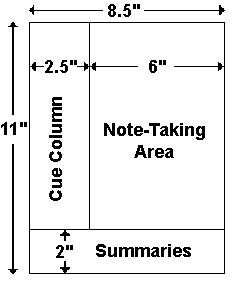
http://www.dartmouth.edu/~acskills/videos/video_nt.html
Note Taking Skills
http://en.wikipedia.org/wiki/Diagram
おすすめ 図
http://learningcommons.ubc.ca/student-toolkits/
Read actively and record any questions or interesting
pieces you find to bring up in class/discussion/office
hours.
Even just talking about these issues with a friend
will help solidify your understanding.
Taking notes in the Question -> Evidence ->
Conclusion method, ensuring quality notes.
Prioritize the rest of your readings into what can be
read, skimmed or skipped.
The frequency that these readings are mentioned in
syllabus or lecture is good clue to prioritizing.
Skimming for definitions and key terms leaves out
the comprehension that ties it all together.
It’s
helpful to locate these pieces in the conclusion
section of readings or major points made in class.
TAKING LECTURE NOTES
I. There are many reasons for taking lecture notes.
A. Making yourself take notes forces you to listen carefully and test your understanding of the material.
B. When you are reviewing, notes provide a gauge to what is important in the text.
C. Personal notes are usually easier to remember than the text.
D. The writing down of important points helps you to remember then even before you have studied the material formally.
II. Instructors usually give clues to what is important to take down. Some of the more common clues are:
A. Material written on the blackboard.
B. Repetition
C. Emphasis
1. Emphasis can be judged by tone of voice and gesture.
2. Emphasis can be judged by the amount of time the instructor spends on points and the number of examples he or she uses.
D. Word signals (e.g. "There are two points of view on . . . " "The third reason is . . . " " In conclusion . . . ")
E. Summaries given at the end of class.
F. Reviews given at the beginning of class.
III. Each student should develop his or her own method of taking notes, but most students find the following suggestions helpful:
A. Make your notes brief.
1. Never use a sentence where you can use a phrase. Never use a phrase where you can use a word.
2. Use abbreviations and symbols, but be consistent.
B. Put most notes in your own words. However, the following should be noted exactly:
1. Formulas
2. Definitions
3. Specific facts
C. Use outline form and/or a numbering system. Indention helps you distinguish major from minor points.
D. If you miss a statement, write key words, skip a few spaces, and get the information later.
E. Don't try to use every space on the page. Leave room for coordinating your notes with the text after the lecture. (You may want to list key terms in the margin or make a summary of the contents of the page.)
F. Date your notes. Perhaps number the pages.
SAVING TIME ON NOTETAKING
Here are some hints regarding taking notes on classroom lectures that can save time for almost any student. Some students say that they plan to rewrite or type their notes later. To do so is to use a double amount of time; once to take the original notes and a second to rewrite them. The advice is simple: DO IT RIGHT THE FIRST TIME!
Second, there are some students who attempt to take notes in shorthand. Though shorthand is a valuable tool for a secretary, it is almost worthless for a student doing academic work. Here's why. Notes in shorthand cannot be studied in that form. They must first be transcribed. The act of transcribing notes takes an inordinate amount of time and energy but does not significantly contribute to their mastery. It is far better to have taken the notes originally in regular writing and then spend the time after that in direct study and recitation of the notes.
Third, do not record the lesson on a cassette tape or any other tape. The lecture on tape precludes flexibility. This statement can be better understood when seen in the light of a person who has taken his/her notes in regular writing. Immediately after taking the notes this person can study them in five minutes before the next class as s/he walks toward the next building, as s/he drinks his/her coffee, or whatever. Furthermore, this student, in looking over his/her notes, may decide that the notes contain only four worthwhile ideas which s/he can highlight, relegating the rest of the lecture to obscurity. Whereas the lecture on tape has to be listened to in its entirety including the worthwhile points as well as the "garbage," handwritten notes may be studied selectively. A student who takes the easy way out - recording the lecture on tape as he or she sits back doing nothing - will box him or herself into inflexibility.
NOTE MAKING
Learning to make notes effectively will help you to improve your study and work habits and to remember important information. Often, students are deceived into thinking that because they understand everything that is said in class they will therefore remember it. This is dead wrong! Write it down.
As you make notes, you will develop skill in selecting important material and in discarding unimportant material. The secret to developing this skill is practice. Check your results constantly. Strive to improve. Notes enable you to retain important facts and data and to develop an accurate means of arranging necessary information.
Here are some hints on note making.
1. Don't write down everything that you read or hear. Be alert and attentive to the main points. Concentrate on the "meat" of the subject and forget the trimmings.
2. Notes should consist of key words or very short sentences. If a speaker gets sidetracked it is often possible to go back and add further information.
3. Take accurate notes. You should usually use your own words, but try not to change the meaning. If you quote directly from an author, quote correctly.
4. Think a minute about your material before you start making notes. Don't take notes just to be taking notes! Take notes that will be of real value to you when you look over them at a later date.
5. Have a uniform system of punctuation and abbreviation that will make sense to you. Use a skeleton outline and show importance by indenting. Leave lots of white space for later additions.
6. Omit descriptions and full explanations. Keep your notes short and to the point. Condense your material so you can grasp it rapidly.
7. Don't worry about missing a point.
8. Don't keep notes on oddly shaped pieces of paper. Keep notes in order and in one place.
9. Shortly after making your notes, go back and rework (not redo) your notes by adding extra points and spelling out unclear items. Remember, we forget rapidly. Budget time for this vital step just as you do for the class itself.
10. Review your notes regularly. This is the only way to achieve lasting memory.
©Academic Skills Center, Dartmouth College 2001
http://alsensei.com/why-arent-japanese-people-good-at-english-part-4-of-5/
お勧め 英語について
http://www.dartmouth.edu/~acskills/success/notes.html
役立つサイト
http://news.mynavi.jp/column/en/041/index.html
学びニュース
http://news.mynavi.jp/column/en/041/index.html
用例集
http://www.who.int/research/en/
WHO 統計資料
http://www.wordreference.com/enja/teleconference
英語のサイト
http://www.zairyo-ya.com/info/dic_page_a.html
材料のサイト
http://www.csi.edu/ip/adc/lap/documents/Cornell_Notes.pdf
ノートについて
http://www.socialresearchmethods.net/kb/stat_t.php
統計 英語のサイト
http://www.free-eigo.com/links.htm
英語学習サイトの紹介
http://www.langoo.info/%E8%8B%B1%E5%8D%98%E8%AA%9E%E9%9B%86/%E9%A3%9F%E4%BA%8B%E3%81%A7%E4%BD%BF%E3%81%88%E3%82%8B%E8%8B%B1%E5%8D%98%E8%AA%9E.html
英語の日記の書き方のサイト
食事の話題に使える英単語を学習しましょう。
■食卓で
箸
chopsticks
(複数形)
つまようじ
toothpick
茶碗
rice bowl
皿
plate
湯呑み
teacup
■台所用品
冷蔵庫
refrigerator
電子レンジ
microwave oven
■食事場所
食堂
cafeteria
レストラン
restarant
喫茶店
coffee shop
■その他の表現
(混んでいたので)並んで待つ
wait in a line
~を食べないようにしている
keep away from ~
~の種類が多い
a variety of ~
http://www.cosmopier.com/diary/
日記関係サイト 添削
http://repository.kulib.kyoto-u.ac.jp/dspace/bitstream/2433/87484/1/que00001_001.pdf
リア王の論文 京大
http://ejje.weblio.jp/content/%E8%AB%96%E6%96%87
論文
【名詞】
1 article
出版物の独立した部分を成すノンフィクションの散文
(nonfictional prose forming an independent part of a publication)
2 paper
観察の結果または仮説を述べる学問的な記事
(a scholarly article describing the results of observations or stating hypotheses)
he has written many scientific papers 彼は多くの科学論文を書いた
3 dissertation, thesis
研究から生じた新しい観点を前へ進める論文
(a treatise advancing a new point of view resulting from research)
4 essay
分析的、または説明的な文芸創作
(an analytic or interpretive literary composition)
5 composition, paper, theme, report
(特に研究課題として書かれた)小論
(an essay (especially one written as an assignment))
he got an A on his composition 彼はレポートでAを取った
http://matome.naver.jp/odai/2129229066602278901
年賀状など例文サイトの紹介
http://www.ccur.co.jp/Concurrent_Real-Time_Linux_Integrated_Systems.aspx
コンカレント 会社
http://www.csi.edu/ip/adc/lap/documents/Cornell_Notes.pdf
ノート例
http://ja.wikipedia.org/wiki/%E3%83%8F%E3%83%B3%E3%82%B9%E3%83%BB%E3%83%99%E3%83%BC%E3%83%86
ハンス・アルプレヒト・ベーテ(Hans Albrecht Bethe, 1906年7月2日 - 2005年3月6日)は、アメリカの物理学者。シュトラスブルク(当時ドイツ領、現フランス・ストラスブール)出身のドイツ系ユダヤ人移民。1967年、「原子核反応理論への貢献、特に星の内部におけるエネルギー生成に関する発見」によってノーベル物理学賞を受賞した。
http://ja.w3dictionary.org/index.php?q=can
辞書サイト
Biology 101 -- Prof. Fairbanks -- Sept 18th
Water affects weight
A. Importance of water in controlling weight
- helps metabolize fat
生物学101-フェアバンクス教授-9月18日
水は、重さに影響を及ぼします
A. 重さをコントロールすることでの水の重要性
- 脂肪を代謝するのを助けます
YHOO 翻訳際使用結果 上記

http://www.dartmouth.edu/~acskills/videos/video_nt.html
Note Taking Skills
http://en.wikipedia.org/wiki/Diagram
おすすめ 図
http://learningcommons.ubc.ca/student-toolkits/
Read actively and record any questions or interesting
pieces you find to bring up in class/discussion/office
hours.
Even just talking about these issues with a friend
will help solidify your understanding.
Taking notes in the Question -> Evidence ->
Conclusion method, ensuring quality notes.
Prioritize the rest of your readings into what can be
read, skimmed or skipped.
The frequency that these readings are mentioned in
syllabus or lecture is good clue to prioritizing.
Skimming for definitions and key terms leaves out
the comprehension that ties it all together.
It’s
helpful to locate these pieces in the conclusion
section of readings or major points made in class.
TAKING LECTURE NOTES
I. There are many reasons for taking lecture notes.
A. Making yourself take notes forces you to listen carefully and test your understanding of the material.
B. When you are reviewing, notes provide a gauge to what is important in the text.
C. Personal notes are usually easier to remember than the text.
D. The writing down of important points helps you to remember then even before you have studied the material formally.
II. Instructors usually give clues to what is important to take down. Some of the more common clues are:
A. Material written on the blackboard.
B. Repetition
C. Emphasis
1. Emphasis can be judged by tone of voice and gesture.
2. Emphasis can be judged by the amount of time the instructor spends on points and the number of examples he or she uses.
D. Word signals (e.g. "There are two points of view on . . . " "The third reason is . . . " " In conclusion . . . ")
E. Summaries given at the end of class.
F. Reviews given at the beginning of class.
III. Each student should develop his or her own method of taking notes, but most students find the following suggestions helpful:
A. Make your notes brief.
1. Never use a sentence where you can use a phrase. Never use a phrase where you can use a word.
2. Use abbreviations and symbols, but be consistent.
B. Put most notes in your own words. However, the following should be noted exactly:
1. Formulas
2. Definitions
3. Specific facts
C. Use outline form and/or a numbering system. Indention helps you distinguish major from minor points.
D. If you miss a statement, write key words, skip a few spaces, and get the information later.
E. Don't try to use every space on the page. Leave room for coordinating your notes with the text after the lecture. (You may want to list key terms in the margin or make a summary of the contents of the page.)
F. Date your notes. Perhaps number the pages.
SAVING TIME ON NOTETAKING
Here are some hints regarding taking notes on classroom lectures that can save time for almost any student. Some students say that they plan to rewrite or type their notes later. To do so is to use a double amount of time; once to take the original notes and a second to rewrite them. The advice is simple: DO IT RIGHT THE FIRST TIME!
Second, there are some students who attempt to take notes in shorthand. Though shorthand is a valuable tool for a secretary, it is almost worthless for a student doing academic work. Here's why. Notes in shorthand cannot be studied in that form. They must first be transcribed. The act of transcribing notes takes an inordinate amount of time and energy but does not significantly contribute to their mastery. It is far better to have taken the notes originally in regular writing and then spend the time after that in direct study and recitation of the notes.
Third, do not record the lesson on a cassette tape or any other tape. The lecture on tape precludes flexibility. This statement can be better understood when seen in the light of a person who has taken his/her notes in regular writing. Immediately after taking the notes this person can study them in five minutes before the next class as s/he walks toward the next building, as s/he drinks his/her coffee, or whatever. Furthermore, this student, in looking over his/her notes, may decide that the notes contain only four worthwhile ideas which s/he can highlight, relegating the rest of the lecture to obscurity. Whereas the lecture on tape has to be listened to in its entirety including the worthwhile points as well as the "garbage," handwritten notes may be studied selectively. A student who takes the easy way out - recording the lecture on tape as he or she sits back doing nothing - will box him or herself into inflexibility.
NOTE MAKING
Learning to make notes effectively will help you to improve your study and work habits and to remember important information. Often, students are deceived into thinking that because they understand everything that is said in class they will therefore remember it. This is dead wrong! Write it down.
As you make notes, you will develop skill in selecting important material and in discarding unimportant material. The secret to developing this skill is practice. Check your results constantly. Strive to improve. Notes enable you to retain important facts and data and to develop an accurate means of arranging necessary information.
Here are some hints on note making.
1. Don't write down everything that you read or hear. Be alert and attentive to the main points. Concentrate on the "meat" of the subject and forget the trimmings.
2. Notes should consist of key words or very short sentences. If a speaker gets sidetracked it is often possible to go back and add further information.
3. Take accurate notes. You should usually use your own words, but try not to change the meaning. If you quote directly from an author, quote correctly.
4. Think a minute about your material before you start making notes. Don't take notes just to be taking notes! Take notes that will be of real value to you when you look over them at a later date.
5. Have a uniform system of punctuation and abbreviation that will make sense to you. Use a skeleton outline and show importance by indenting. Leave lots of white space for later additions.
6. Omit descriptions and full explanations. Keep your notes short and to the point. Condense your material so you can grasp it rapidly.
7. Don't worry about missing a point.
8. Don't keep notes on oddly shaped pieces of paper. Keep notes in order and in one place.
9. Shortly after making your notes, go back and rework (not redo) your notes by adding extra points and spelling out unclear items. Remember, we forget rapidly. Budget time for this vital step just as you do for the class itself.
10. Review your notes regularly. This is the only way to achieve lasting memory.
©Academic Skills Center, Dartmouth College 2001
http://alsensei.com/why-arent-japanese-people-good-at-english-part-4-of-5/
お勧め 英語について
http://www.dartmouth.edu/~acskills/success/notes.html
役立つサイト
http://news.mynavi.jp/column/en/041/index.html
学びニュース
http://news.mynavi.jp/column/en/041/index.html
用例集
http://www.who.int/research/en/
WHO 統計資料
http://www.wordreference.com/enja/teleconference
英語のサイト
http://www.zairyo-ya.com/info/dic_page_a.html
材料のサイト
http://www.csi.edu/ip/adc/lap/documents/Cornell_Notes.pdf
ノートについて
http://www.socialresearchmethods.net/kb/stat_t.php
統計 英語のサイト
http://www.free-eigo.com/links.htm
英語学習サイトの紹介
http://www.langoo.info/%E8%8B%B1%E5%8D%98%E8%AA%9E%E9%9B%86/%E9%A3%9F%E4%BA%8B%E3%81%A7%E4%BD%BF%E3%81%88%E3%82%8B%E8%8B%B1%E5%8D%98%E8%AA%9E.html
英語の日記の書き方のサイト
食事の話題に使える英単語を学習しましょう。
■食卓で
箸
chopsticks
(複数形)
つまようじ
toothpick
茶碗
rice bowl
皿
plate
湯呑み
teacup
■台所用品
冷蔵庫
refrigerator
電子レンジ
microwave oven
■食事場所
食堂
cafeteria
レストラン
restarant
喫茶店
coffee shop
■その他の表現
(混んでいたので)並んで待つ
wait in a line
~を食べないようにしている
keep away from ~
~の種類が多い
a variety of ~
http://www.cosmopier.com/diary/
日記関係サイト 添削
http://repository.kulib.kyoto-u.ac.jp/dspace/bitstream/2433/87484/1/que00001_001.pdf
リア王の論文 京大
http://ejje.weblio.jp/content/%E8%AB%96%E6%96%87
論文
【名詞】
1 article
出版物の独立した部分を成すノンフィクションの散文
(nonfictional prose forming an independent part of a publication)
2 paper
観察の結果または仮説を述べる学問的な記事
(a scholarly article describing the results of observations or stating hypotheses)
he has written many scientific papers 彼は多くの科学論文を書いた
3 dissertation, thesis
研究から生じた新しい観点を前へ進める論文
(a treatise advancing a new point of view resulting from research)
4 essay
分析的、または説明的な文芸創作
(an analytic or interpretive literary composition)
5 composition, paper, theme, report
(特に研究課題として書かれた)小論
(an essay (especially one written as an assignment))
he got an A on his composition 彼はレポートでAを取った
http://matome.naver.jp/odai/2129229066602278901
年賀状など例文サイトの紹介
http://www.ccur.co.jp/Concurrent_Real-Time_Linux_Integrated_Systems.aspx
コンカレント 会社
http://www.csi.edu/ip/adc/lap/documents/Cornell_Notes.pdf
ノート例
http://ja.wikipedia.org/wiki/%E3%83%8F%E3%83%B3%E3%82%B9%E3%83%BB%E3%83%99%E3%83%BC%E3%83%86
ハンス・アルプレヒト・ベーテ(Hans Albrecht Bethe, 1906年7月2日 - 2005年3月6日)は、アメリカの物理学者。シュトラスブルク(当時ドイツ領、現フランス・ストラスブール)出身のドイツ系ユダヤ人移民。1967年、「原子核反応理論への貢献、特に星の内部におけるエネルギー生成に関する発見」によってノーベル物理学賞を受賞した。
http://ja.w3dictionary.org/index.php?q=can
辞書サイト
Biology 101 -- Prof. Fairbanks -- Sept 18th
Water affects weight
A. Importance of water in controlling weight
- helps metabolize fat
生物学101-フェアバンクス教授-9月18日
水は、重さに影響を及ぼします
A. 重さをコントロールすることでの水の重要性
- 脂肪を代謝するのを助けます
YHOO 翻訳際使用結果 上記















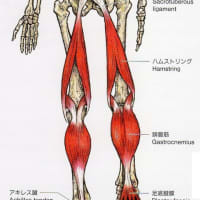
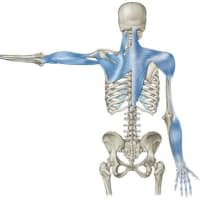
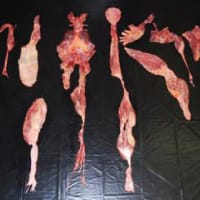
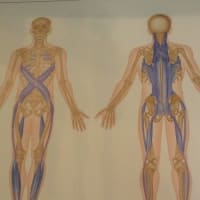
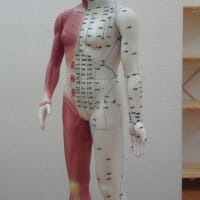
※コメント投稿者のブログIDはブログ作成者のみに通知されます